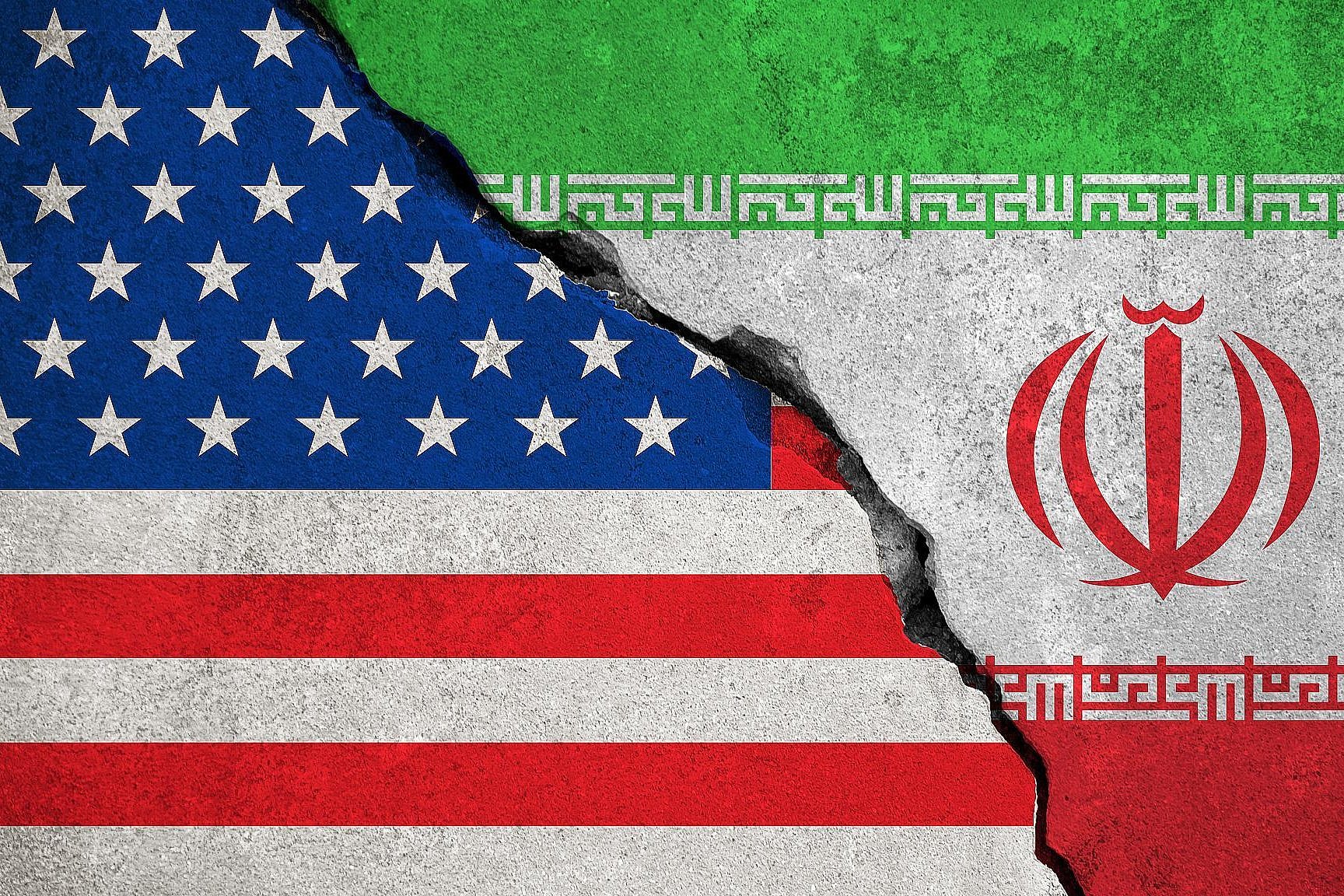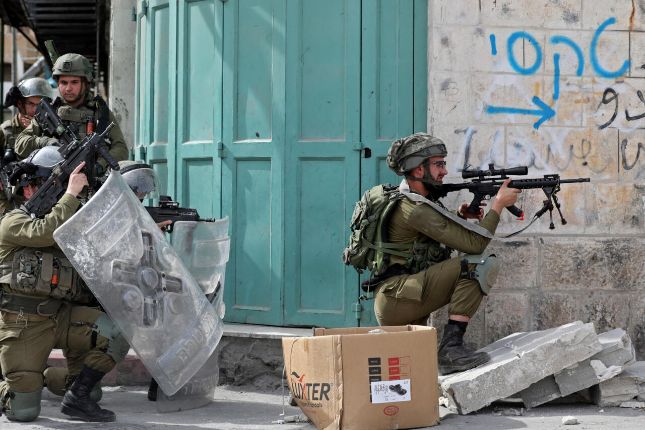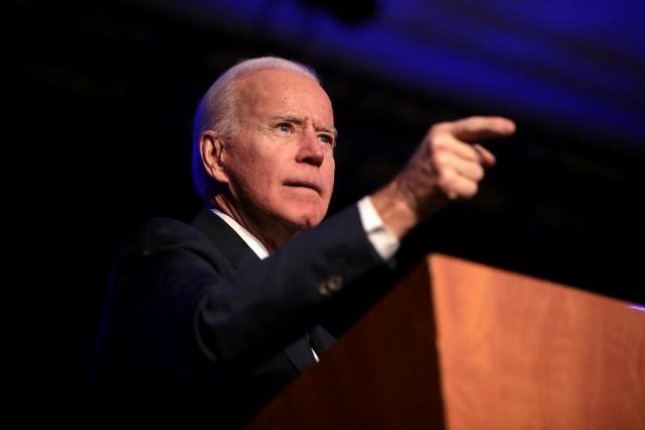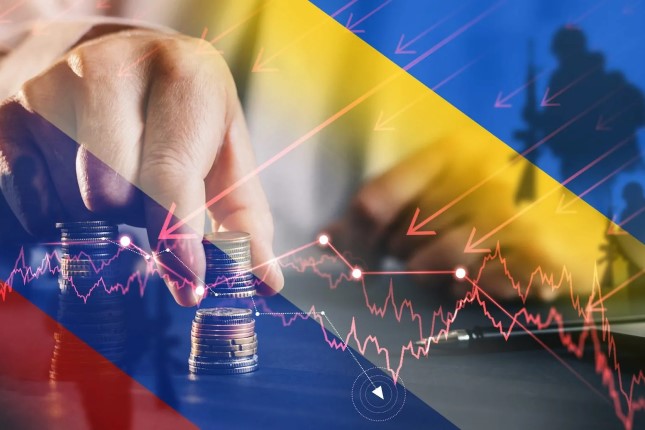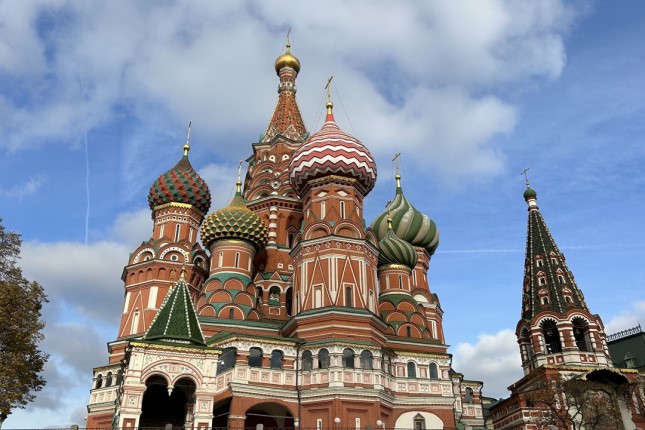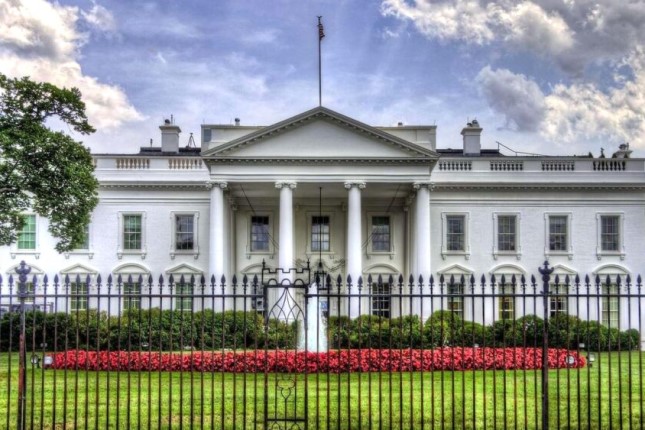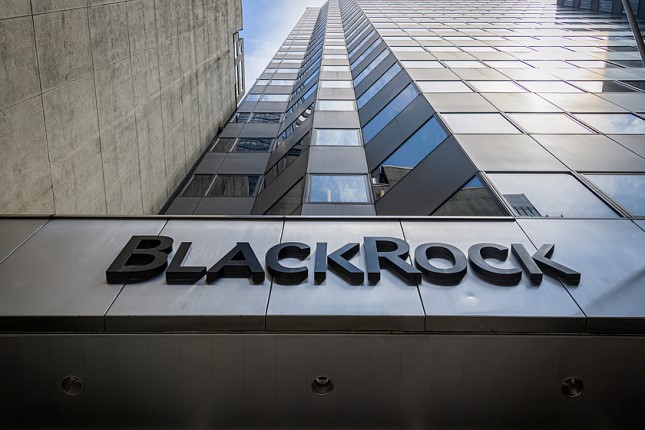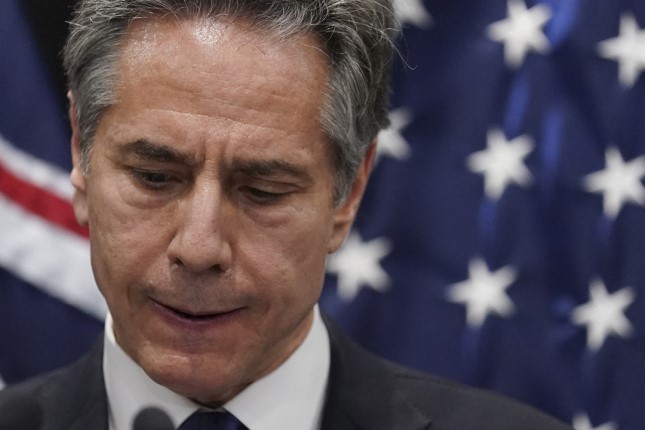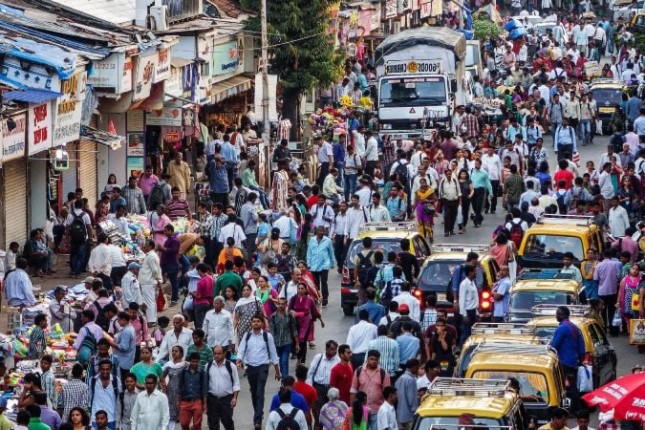Chairing his cabinet meeting on August 24, French president Emmanuel Macron warned the French that they were facing what he called "the end of abundance".
"What we are currently living through is a kind of major tipping point or a great upheaval … we are living the end of what could have seemed an era of abundance … the end of the abundance of products of technologies that always seemed available … the end of the abundance of land and materials including water," Macron said.
These days, Emmanuel Macron seems to be probably the most broad-minded politician in the West. He was precise in his choice of words, speaking about the end of "what could have seemed an era of abundance" rather than the end of "an era of abundance". Still, Macron limited his speech to a broad overview of shortages that France, Europe and the entire world are likely to face, which is quite understandable and forgivable for a Western politician.
At his first cabinet meeting after the summer break, Macron primarily focused on shortages of material goods. However, the "Deficit era" that the world seems to be entering will affect all facets of human life, including politics, security and ideology. As a consequence, this era may become one of the most perilous periods in human history. But first things first.
Material deficit
It was quite a shock to see how rapidly and extensively the global markets were upended by Russia's military operation in Ukraine and the West's subsequent sanctions against Russia. The profound effect was not only due to Russia's significant presence in the oil and gas, food and fertiliser markets, which Western politicians seemed to underestimate.
The fact is that many commodity markets have what is known as low price elasticity of demand. Consequently, even a relatively minor imbalance of supply and demand (around 10%) will cause prices to change many times over. It is worth remembering that Russia is the world's leading commodity exporter, accounting for 11% of all global commodity exports. Conversely, even a sharp increase in price levels is unlikely to cause consumers of some goods to reduce their consumption.
The most graphic example is the oil market which slumped in 2014 and 2015 because of a slight surplus of production over consumption. At the height of the crisis, crude oil tankers had to be used as storage facilities. In the end, OPEC members agreed to cut output levels, all it took to stabilise the global market.
In an effort to outplay OPEC and cap energy prices, the US has been selling oil from its Strategic Petroleum Reserve since the beginning of 2020. According to the US Department of Energy, by this October, the country's reserves will decline to 359 million barrels (same as in 1983), as compared to 638 million barrels in January 2020 and 589 million barrels in February 2022. Since the Ukraine war broke out, the US has been depleting its strategic cache much faster than it looks. If major oil-producing countries do not increase their output levels in early 2023, the US will have to give up on this front. Moreover, the Western economy as a whole will have to grapple with severe oil shortages.
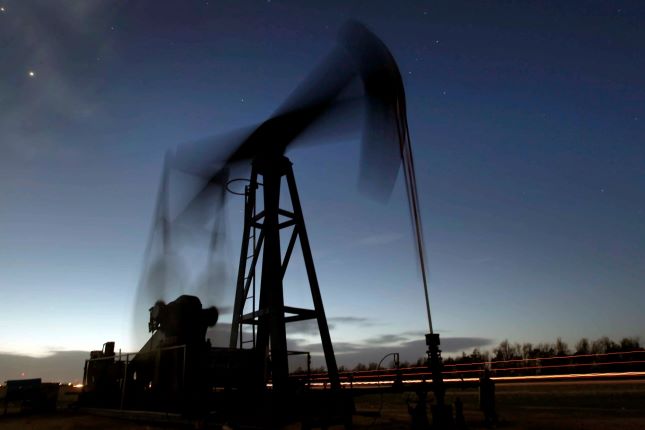
In addition, the US is highly concerned about the reduced availability of Russian crude, which will push oil prices even higher... Photo: AP/Charlie Riedel.
The global food market is obviously more complex. For example, grain prices are less volatile than oil prices, but the overall pattern is essentially the same. Besides, the food market has been facing tight supply for years. It is no wonder the first major supply crisis triggered such a profound shock. According to the UN Food and Agriculture Organisation, from 2010 to 2019, the per capita calorie supply remained flat in all major markets except Asia. North America recorded some marginal growth only to reach 2005 supply levels. All this happened against a long-running trend associated with two factors: declining real food prices and rising demand from fast-growing economies with booming populations.
In other words, the food market went from a state with some margin of safety (0+) to a precarious state when any shock could tip its fragile balance (0-), especially when Russia and Ukraine, the world's primary food producers, turned out to be out of play.
The food crisis has been on the cards for a long time. Since 2017, UNICEF has been publishing annual "food insecurity reports". In 2020, the organisation sounded the alarm about aggravating conditions.
The onset of the food crisis was, therefore, only a matter of time. Needless to say, it will be a while before it is resolved. In a perfect world, major countries would have to work together to overcome the challenge. However, this is out of the question in the current geopolitical circumstances.
Today the food market appears to be more interlinked with the energy market than ever. For instance, more than a quarter of European plants that make nitrogen fertilisers have suspended operations because of rising gas prices. In addition, prices for imported ammonia have soared following the outbreak of hostilities in Ukraine.
However, oil and food supplies are only the tip of the iceberg. As a result of rising tensions, other supplies ranging from microchips and batteries to nickel, palladium and uranium have also been affected on a global scale.
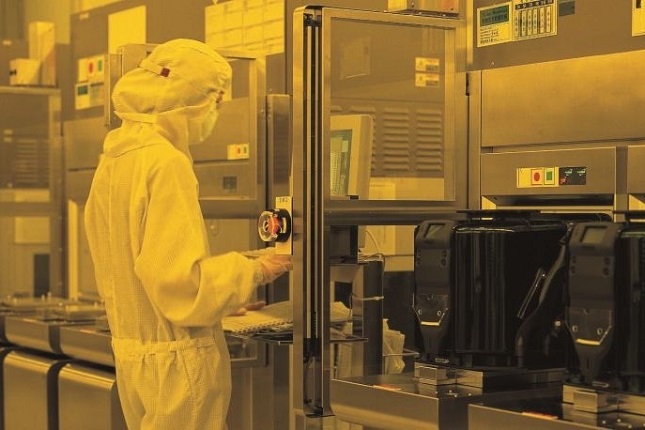
Amid rising tensions around Taiwan, China's ban on sand exports to the island threatens to disrupt microchip production at chip manufacturing at TSMC. Photo:TSMC.
Strained relations between the West and its rivals Russia and China are also undermining global price stability. Here is how Zoltan Pozsar, lead analyst at Credit Suisse, describes this situation: "Think of Russia as the "global systemically important bank of natural resources" and think of China as the "global systemically important bank of labour [factories and plants]," or the world's largest producers of raw materials and consumer goods, respectively. [They are] providers of two fundamental factors that sustain an era of low inflation on a global scale..."
"The world before February 24" has fallen apart. Just like a broken cup, it cannot be glued together. Supply chains of raw materials and manufactured goods are breaking down, and geopolitical risks are mounting. This means that we are likely to come across all sorts of "unexpected" shortages, including a shortage of geolocation services.
Political deficit
A deficit of security is one of the most critical deficits of the new era. The Ukraine war has clearly shown that a major conflict is inevitable if no common collective security system exists.
"The responses to our proposals received from the United States and NATO on January 26, 2022, show considerable discrepancies in the understanding of the principle of equal and indivisible security that is central to Europe's entire security architecture. We consider it necessary to clarify this issue immediately as it determines opportunities for dialogue," said Russian Foreign Minister Sergei Lavrov's message to Russia's Western partners on January 28, 2022. This statement was made about the response received by Russia on January 26 with regard to its security proposals. It took Moscow only two days to get back to the US and NATO – another indication that Russia treated the matter with the utmost urgency. However, Moscow's message fell on deaf ears.
Since Russia's military operation got underway in Ukraine six months ago, the world has become much more dangerous. Ukrainian forces are shelling the Zaporizhzhia nuclear power plant. Tons of weapons, including advanced portable and anti-aircraft missile systems, have poured into Ukraine, with some weapons probably finding new recipients and never reaching the front lines. The top brass of several NATO countries is involved in coordinating the combat operations of Ukrainian armed forces, dragging their countries deeper into the ongoing conflict.
In fact, the world is approaching a critical boundary: a decision on direct involvement in the Ukraine conflict similar to the Korean or Vietnamese scenarios may become a reality. Reports are circulating that in the coming weeks, the White House plans to integrate all US military aid to Ukraine into a single mission. The operation is expected to be code-named and assigned to a senior officer...
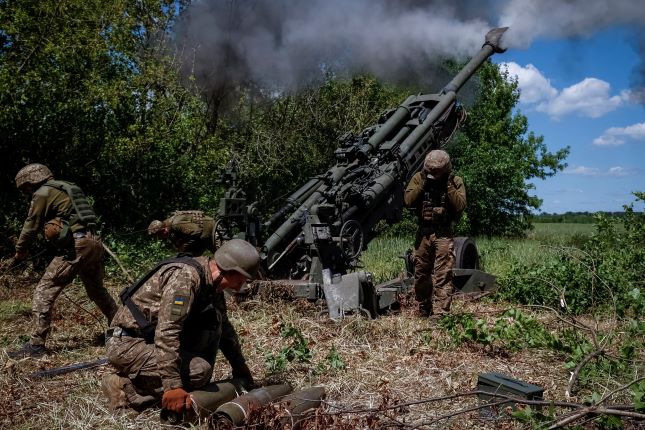
Ukrainian soldiers are firing a US-supplied M777 howitzer. Photo: Reuters/Stringer.
The security crisis around Taiwan. Domestic conflicts in Pakistan and Sri Lanka. The simmering conflict between Armenia and Azerbaijan may turn into a clash involving Iran and Turkey. Growing tensions between Israel and its neighbours. A military stand-off between Algeria and Morocco. The list of hot spots goes on and on. What's worse, each of these conflicts may escalate into a shooting war against the will of conflicting parties. If history is anything to go by, this has been known to happen many times.
The security deficit, however, is not the only one on the horizon. Political systems are strained in all key countries. The Chinese system, for example, is braced for a third leadership term of Xi Jinping. Remarkably, the Chinese no longer compare their leader to Deng Xiaoping – a direct parallel with Mao Zedong himself is now in order.
Torn by internal contradictions, the European Union may not be in a position to handle the impending social and economic crisis, which will inevitably lead to a long-term decline in the standard of living and quality of life. The United States recorded an unprecedented rise in gun violence in 2021, reaching an all-time high of 691 mass shootings involving more than four deaths. The Supreme Court added fuel to the fire by allowing state authorities to ban abortions. It is also worth remembering the unfolding scandal triggered by the FBI's search of Donald Trump's residence.
The deficit of political stability is pervasive: the more economic deficits intensify, the more political instability expands. Part of the reason is that modern elites are either extremely reluctant to resort to direct repression and coercion, or they are no longer capable of using such tools. It appears that the ability to use violence as required by circumstances will also be in short supply in the new era.
Deficit of expansion and meaning
Growth opportunities are becoming the scarcest commodity of the new era. These relate to opportunities to expand in one sphere or another.
Humanity has finally shifted from the empty world open to expansionism to the full world, according to the Club of Rome's report published in 2018. At the same time, growth opportunities still play a key role in this day and age.
Modern society is part of a system of expanded reproduction. In other words, it operates as part of a recurrent process aimed at producing economic goods on an increasing scale.
It is virtually impossible to shift the paradigm from expanded reproduction to simple reproduction without changing the underlying social, economic and political framework.
For example, affordable credit is an attribute of the expanded reproduction system. It is based on the ability to borrow money against future value. However, if the future value does not increase, there is no basis for credit.
In addition, credit has been growing at a faster rate than production. This disparity has rocked the capitalist system time and again, causing regular crises and wars, which, in turn, have wiped out excess debt. To a larger extent, the stock and the derivatives markets are also part of the same expanded reproduction system.
Clearly, high market valuations of Western (primarily US) companies are not really an indication of investor confidence in their long-term stability. Instead, today's market capitalisation should be viewed as an expectation of higher profitability in the future.
The 10-year price-to-earnings ratio for the S&P 500 Index currently stands at 31.2, which is 55% higher than the average index since the end of World War II. Apart from the purely monetary expansion of recent years, this is undoubtedly an indication of heightened investor expectations of expanding markets.
But the real markets have no room for growth. Some may have expected to benefit from the "annexation" of Ukraine and other parts of the former Soviet Union. Others might have hoped for a regime change in Russia followed by a change in the Chinese system due to the new balance of power. However, none of these plans and expectations materialised. Oddly enough, the war between Russia and Georgia in 2008 appeared synchronised with the global financial crisis. Similarly, the timing of the war between Russia and Ukraine seems to coincide with a new wave of global economic turbulence.
If the existing system is not expanding, it must change... But can it change? How traumatic will this transformation be? There is every indication that, at the moment, the system has no intention of changing.
Earlier this month, Emmanuel Macron also talked about "the price to pay for freedom". In terms of ideology, he remains within the framework of a system that intended to expand indefinitely. This expanding system gave rise to the way of life that Macron describes as "freedom". However, if the system stops growing, this way of life has no future.
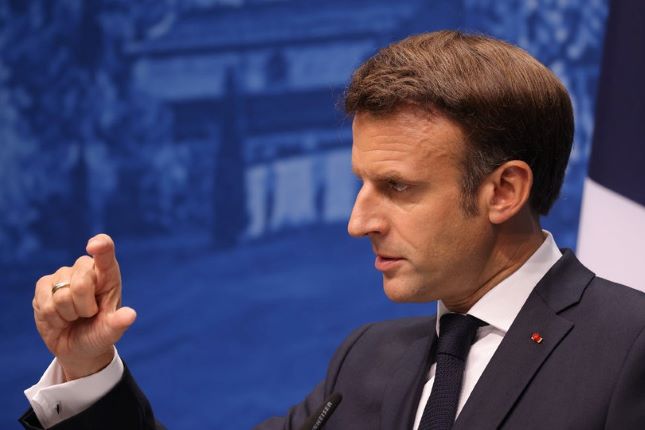
Photo: Getty Images.
Yet Macron automatically suggested that ordinary people in Western countries should sacrifice their standard of living and quality of life for the sake of the greater meaning that the outgoing system has produced. Pure and simple, he is probably unable to propose any other meaning to justify the impending deprivations.
The deficit of meaning is the most dangerous deficit that will define the coming "Deficit era". This is due to the fact that the basket of meanings – ideas that people are prepared to make sacrifices, suffer and fight for – is empty. Various religious, cultural and ethical concepts have been exhausted during the previous cycles of over-exploitation. Consumer expectations are overheated, and neoliberal theories that justify them are about to be scrapped.
The ordinary person is frustrated. He or she is well-informed. The average citizen is also angry. Finally, the man in the street has got unprecedented opportunities for self-organisation. The recent protests of truck drivers in Canada are a prime example of this phenomenon.
Experience shows that even such substantial threats as the coronavirus pandemic do not provide a satisfactory explanation for why people have to sacrifice their normal way of life en masse. The fight against climate change is even less relevant following the relaunch of coal-fired power plants in Europe.
What else is left? An enemy, a direct existential threat to survival. The Deficit era is going to be extremely uncomfortable. Welcome!





















